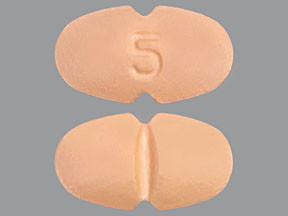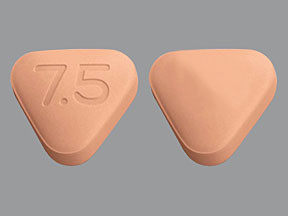IVABRADINE - ORAL
PHONETIC PRONUNCIATION: (eye-VAB-ra-deen)
COMMON BRAND NAME(S): Corlanor
GENERIC NAME(S): ivabradine HCl
Uses
USES: This medication is used by people with a certain heart problem (chronic heart failure), to help prevent it from getting worse and needing treatment in a hospital. Heart failure is a condition where your heart does not pump blood as well as it should. Ivabradine works by making your heart beat more slowly. It should not be used if you have a slow resting heartbeat (less than 60 beats per minute) before starting ivabradine, low blood pressure, or if your heart failure symptoms have recently gotten worse.
How to use IVABRADINE - ORAL
HOW TO USE: Read the Medication Guide provided by your pharmacist before you start taking ivabradine and each time you get a refill. If you have any questions, ask your doctor or pharmacist. Take this medication by mouth with a meal as directed by your doctor, usually twice daily. The dosage is based on your medical condition and response to treatment. To reduce your risk of side effects, your doctor may direct you to start this medication at a low dose and gradually increase your dose. Other medications are usually used along with ivabradine to treat heart failure. Carefully follow your doctor's directions for taking all your medications. Use this medication regularly to get the most benefit from it. To help you remember, take it at the same times each day. Avoid eating grapefruit or drinking grapefruit juice while using this medication unless your doctor or pharmacist says you may do so safely. Grapefruit can increase the chance of side effects with this medicine. Ask your doctor or pharmacist for more details. Tell your doctor if your condition does not improve or if it worsens.
Side Effects
Precautions
Interactions
Overdose
Images
Reviews
Faq for IVABRADINE - ORAL
Ivabradine is an oral medication that belongs to a class of drugs called selective If channel inhibitors. It is used to treat certain heart conditions such as chronic heart failure and angina.
Ivabradine works by reducing the heart rate, allowing the heart to pump more efficiently and decrease the workload on the heart. It does this by selectively inhibiting the If channels in the sinoatrial node, which is responsible for regulating the heart rate.
Common side effects of Ivabradine may include temporary brightness in your vision, slow heart rate, low blood pressure, dizziness, and fatigue. It is important to speak to your doctor if these side effects persist or worsen.
Yes, Ivabradine should not be used if you have a pre-existing heart condition such as unstable angina, severe heart failure, very low blood pressure, or certain irregular heart rhythms. It may also interact with certain medications and should be used with caution in patients with liver or kidney problems.
Ivabradine should be taken exactly as prescribed by your doctor. It is usually taken twice daily with food. Avoid grapefruit or grapefruit juice while taking Ivabradine, as it may increase the levels of the medication in your blood.
It is not recommended to use Ivabradine during pregnancy unless clearly needed and prescribed by your doctor. It is also not known if Ivabradine passes into breast milk, so it is recommended to avoid breastfeeding while taking this medication.
Disclaimer
IMPORTANT: HOW TO USE THIS INFORMATION: This is a summary and does NOT have all possible information about this product. This information does not assure that this product is safe, effective, or appropriate for you. This information is not individual medical advice and does not substitute for the advice of your health care professional. Always ask your health care professional for complete information about this product and your specific health needs.


No Reviews Yet